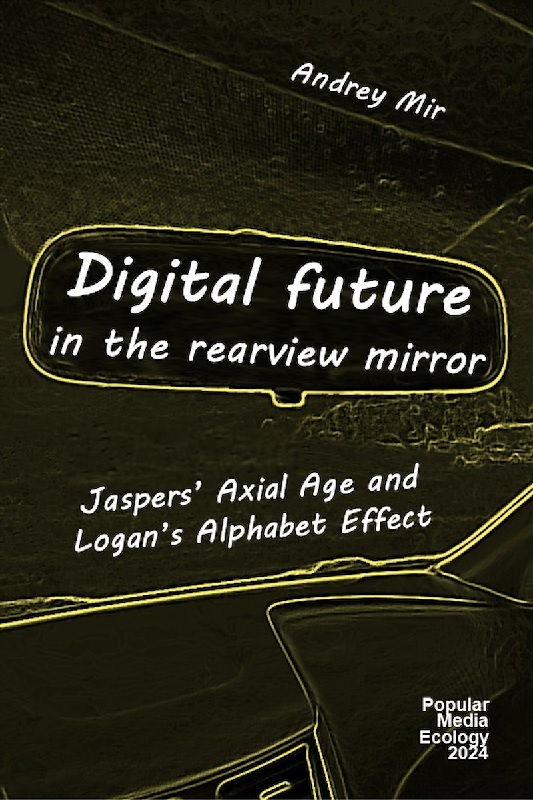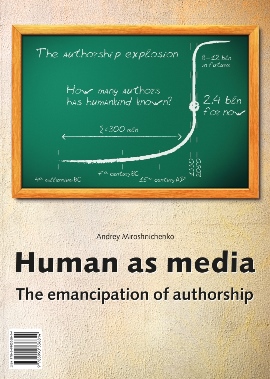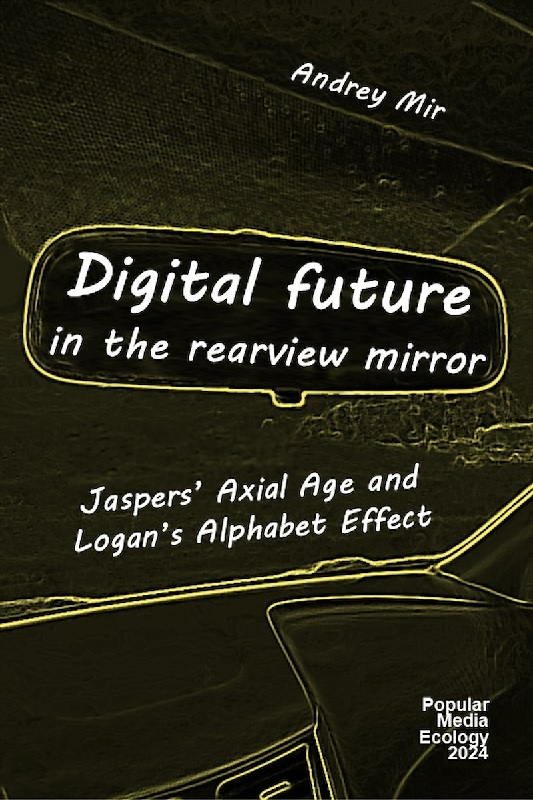Despite all the similarities between pirates and nomads, there was an aspect that distinguished them. Seafarers had to possess universal skills that could be required for survival when nobody was around. A chapter from Digital Future in the Rearview Mirror: Jaspers’ Axial Age and Logan’s Alphabet Effect.
(Previously in the chapter:
1. The pirates of the Aegean and the opportunistic mentality
2. Pirates and horses.
3. Pirates and the tragic spirit.)
Despite all the similarities between pirates and nomads, there is an aspect that distinguishes them. However adventurous and dangerous a nomad’s life could be, it was impossible for him or her to remain alone for a long time. Even if an individual was abandoned or expelled by their tribe, or captured and enslaved by another tribe, he or she would inevitably become part of a new collective.
Being lost at sea radically differs from being lost in the steppe or forest. At sea, there’s always the possibility of ending up on a desert island or an abandoned ship or sailing a boat alone. All the exemplary pirates/seafarers – Odysseus, Sinbad, Robinson Crusoe, even Jack Sparrow – find themselves completely alone at some point in their lives. For days, months, or even years.
The prospect of being caught in complete solitude added to the tragedism of the seafaring mentality. But it also tested the resourcefulness of a seafarer and mobilized his ingenuity. The “probabilistic affordance,” so to speak, of complete isolation provided by sea was the ultimate trial of an individual’s autonomy and universalism.
Nomads, with all their opportunism and autonomy of choices, remained collective beings that counted on the presence of others, whether friendly or hostile. Seafarers had to possess universal skills that could be required for survival when nobody was around. For Odysseus to be polytropos meant not only to be opportunistic but also self-reliant. Odysseus was capable not only of savvy political games but also of ruling the kingdom and ploughing the soil. He was well-versed in cattle husbandry and dairy production. He knew cooking and medicine. He single-handedly built a boat and navigated the sea back home completely alone after losing all his men. Most importantly, he was morally ready to encounter all these tasks and challenges on his own. Athena sympathized and helped him, but there was also Poseidon, whose wrath neutralized her divine support, causing Odysseus endless problems at sea. All in all, no matter what games the gods play, a seafarer has to rely on himself.
Even if not all sailors can actually end up in solitary adversity, the level of autonomy and universalism of a seafarer is incomparable to that of an inland inhabitant. As Petrov puts it,
In a typical “Olympian” civilization, there were no situations in which a man, willingly or not, needed to accumulate universal skills, reflect on his own fate, and manage his life on his own.[1]
The seafaring Minoan civilization of Crete and the succeeding Mycenaean civilization, with their leaning toward piracy, consisted of individuals with such a level of autonomy and universalism that was unparalleled at the time. Petrov highlights that the Cretan-Mycenaean[2] statehood was the first in the history of humankind that pirates-explorers devised as a system that formed “men-states” – self-determining and well-rounded individuals possessing individual civic virtues.[3]
In a sense, piracy had a similar effect of individualization as writing – but piracy came first. This is why Petrov’s essay is titled Pirates of the Aegean and Individuality. Petrov explores the effect of piracy on forming the autonomous mentality, comparing it to the effect of literacy.
Quite in tune with Havelock and Ong (and practically at the same time: Havelock – 1963, Petrov – 1966, Ong – 1967, 1982), Petrov analyzes the transformation of consciousness under the development of writing from the bureaucratic craft of the few (Havelock’s “craft literacy”) to the literacy of many. In the Cretan-Mycenaean epoch, writing was integrated into the palace management and had not yet revealed the “blind creative power of text,” as Petrov writes. During the Greek Dark Age (1100–750 BCE), palace writing was abandoned and forgotten. But then the alphabet triggered the explosion of literacy. “Writing transformed from a registry craft into an individual-universal skill – a written speech,” as Petrov sees it. “The Greeks were forced into the position of compulsory creativity.”[4] This is where the similarity with piracy transpires.
Since Petrov was not translated in English, it is worth giving an extended quote from his 1966 Pirates of the Aegean and Individuality that shows his advanced understanding of media ecology before the term itself was even introduced by Postman in 1969. On the transition of writing from bureaucratic registry in temples-palaces to the individual skill of written speech, Petrov comments:
The enormity of this event is evident; all other cultural revolutions fade in comparison, as this is not about, for example, imparting in everyone the skill of swimming across medium-sized rivers, but about instilling in each person an individual attitude towards reality – an attitude principally original and distinct from others. Writing, as a universal individual skill – as literacy – is inherently a blind creative force that mobilizes the entire population of the literates, whether they want it or not, for theoretical creation.[5] Literacy sets up minds in mutual non-conformity and mismatching, forbids them to repeat each other, and requires each literate mind to produce a new text, a new opinion on any subject that has already been touched upon by the opinions of others. The transition of writing into literacy signifies an automatic transition to a new psychological disposition, a disposition toward seeking novelty, for each literate mind now has to identify the pre-existed attitudes towards reality, reject them as a-priory false or incomplete, and elaborate its own views completing “truth” – meaning constantly being in a creative mode of analysis of the present and a synthesis of the new.
In this way emerges private ownership over thought and its products: theoretical relationships with the world. This private ownership over thought monopolizes the right of truth-seeking and becomes an aggressive-creative mental force incapable of being satisfied by any existing theoretical system, constantly suspecting that truth – ultimate certainty – lies somewhere beyond the established system of relationships, beyond ritual. A never-ending ancient discord, the Hobbesian “war of all against all,” bursts out, in which the only victor is social memory which absorbs all newly arriving texts, meaning new theories of the world, unless it is trimmed or fenced by a Great Wall of censorship or policing measures such as the canonization of texts into a sacred scripture.[6]
After the transition from a craft to a skill, a former bureaucratic nature of writing transformed into a “civic” feature of a writing individual, according to Petrov. This civic feature happened to be also quite a restless and aggressive source of societal turbulence. Instead of social regulation by the pre-established ritualistic mechanisms managed by temples-palaces, it became possible and inevitable to constantly balance the living social organism with the active participation of autonomous and universal citizens. Petrov points out that one of the main concerns of the classic Greek philosophical thought was fostering civic virtues not in a prince but in an ordinary citizen.
The very concept of citizenry emerged. People were recognized as “equally gifted and equally competent” to such a degree that political positions in Athens were filled at some point by sortition, not election: the Athenians were concerned that elections could be corrupted by oligarchs, while the random appointment of officials by a lottery (resembling the selection of jurors nowadays) would preserve the political system from the influence of oligarchs. But such a system also meant that literally every citizen was deemed to be autonomous and competent enough to fulfill political duties on behalf of the polis.[7] Each free Greek was expected to be a polytropos – an Odysseus – in civic matters.
Petrov calls this transition “Ariadne’s thread in our journey in the labyrinth of the Mediterranean from Minos to Solon.” The autonomy and universalism of the seafarers and pirates, already unusual for the times when human agency was often delegated to gods and rituals, turned into the civic autonomy and universalism of the Greek citizens, exceptional then and no less today.
Piracy prepared the Greek minds for the effects of the alphabet. This might explain why the alphabet effect in Greece was so instant and so transformative. The Greeks were ready for the alphabet. The rapid adoption of the alphabet itself was a result of this same preparedness.
A chapter from Digital Future in the Rearview Mirror: Jaspers’ Axial Age and Logan’s Alphabet Effect.
See also books by Andrey Mir:
- Digital Future in the Rearview Mirror: Jaspers’ Axial Age and Logan’s Alphabet Effect (2024)
- Postjournalism and the death of newspapers. The media after Trump: manufacturing anger and polarization (2020)
- Human as media. The emancipation of authorship (2014)



[1] Petrov, Mikhail. (1995 [1966]). Pirates of the Aegean and Individuality, Ch. 6.
[2] Petrov belonged to the tradition that saw the Mycenaean civilization as Cretan-Mycenaean, implying that the younger Mycenaeans from mainland Greece subjugated the older Minoan culture of Crete Island and borrowed much from its palace culture, thus becoming factually the “Cretan-Mycenaean” civilization.
[3] Petrov, Mikhail. (1995 [1966]). Pirates of the Aegean and Individuality, Ch. 6.
[4] Petrov, Mikhail. (1995 [1966]). Pirates of the Aegean and Individuality, Ch. 1.
[5] Essentially, Petrov here describes the concept of affordance, knowing nothing about Gibson, who coined the term and the word “affordance” in the very same year – 1966.
[6] Petrov, Mikhail. (1995 [1966]). Pirates of the Aegean and Individuality, Ch. 1.
[7] This reminds one of Walter Lippmann’s objections against the “romantic view of democracy” in his 1922 Public Opinion. In fact, as Lippmann insisted, people are not omnicompetent in civic matters – they are rather shortsighted and rarely know anything beyond their daily routine. Therefore, a special political class of communication experts is needed to guide both people and politicians and “manufacture consent” in society.
Categories: Digital Future in the Rearview Mirror, Digital orality, Media ecology


Leave a comment